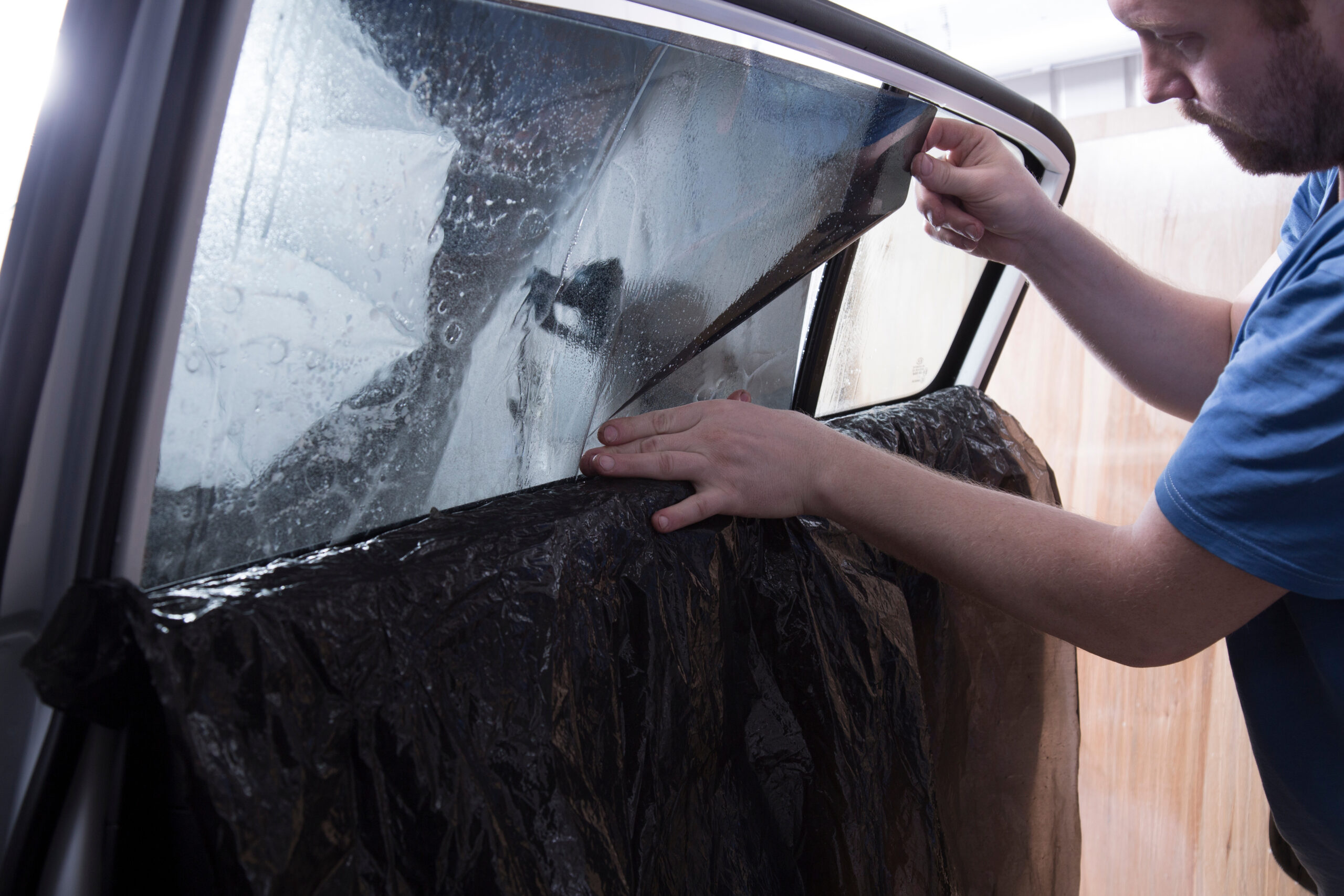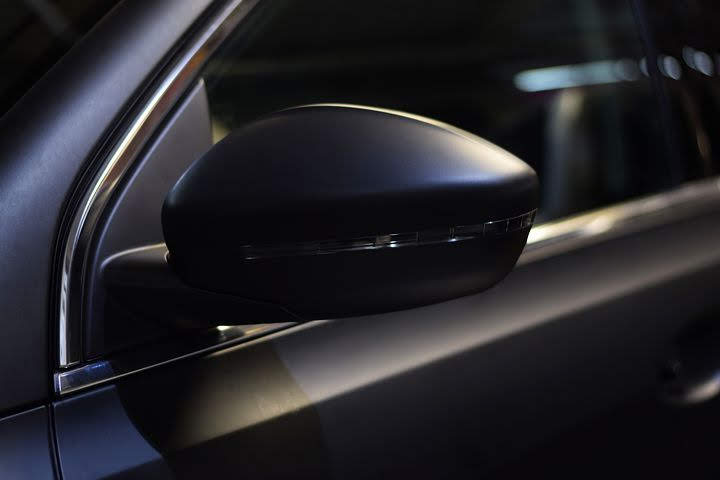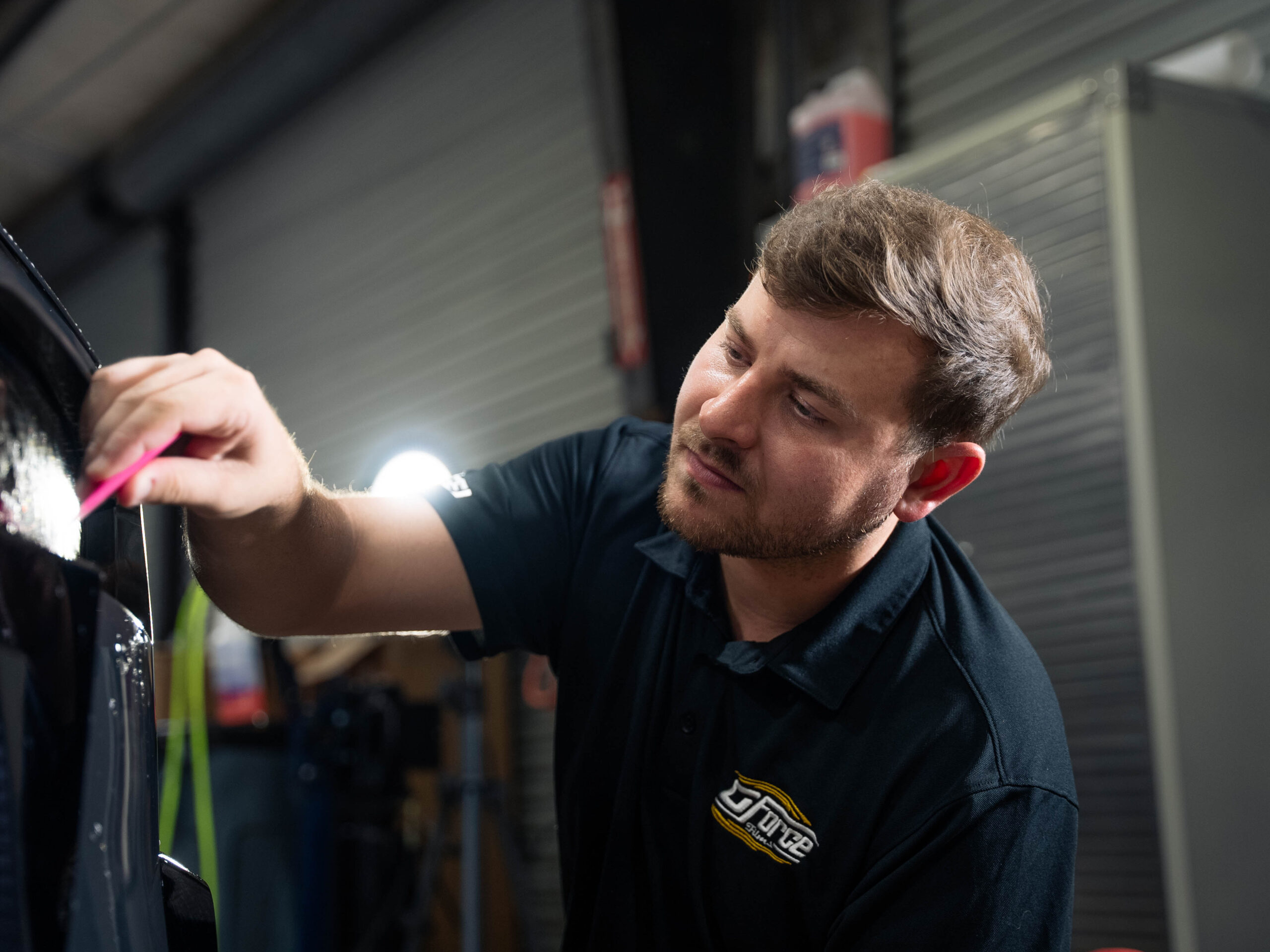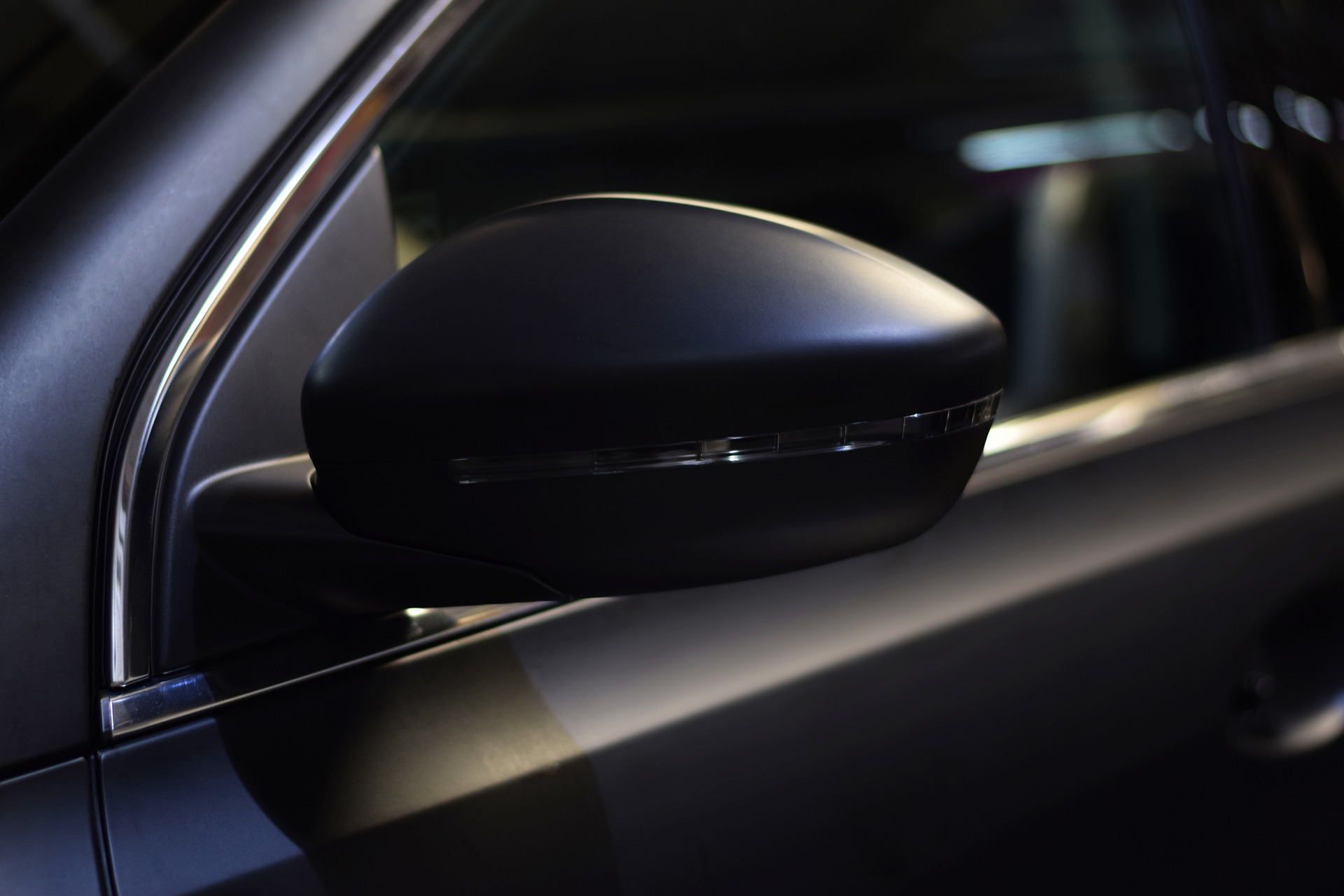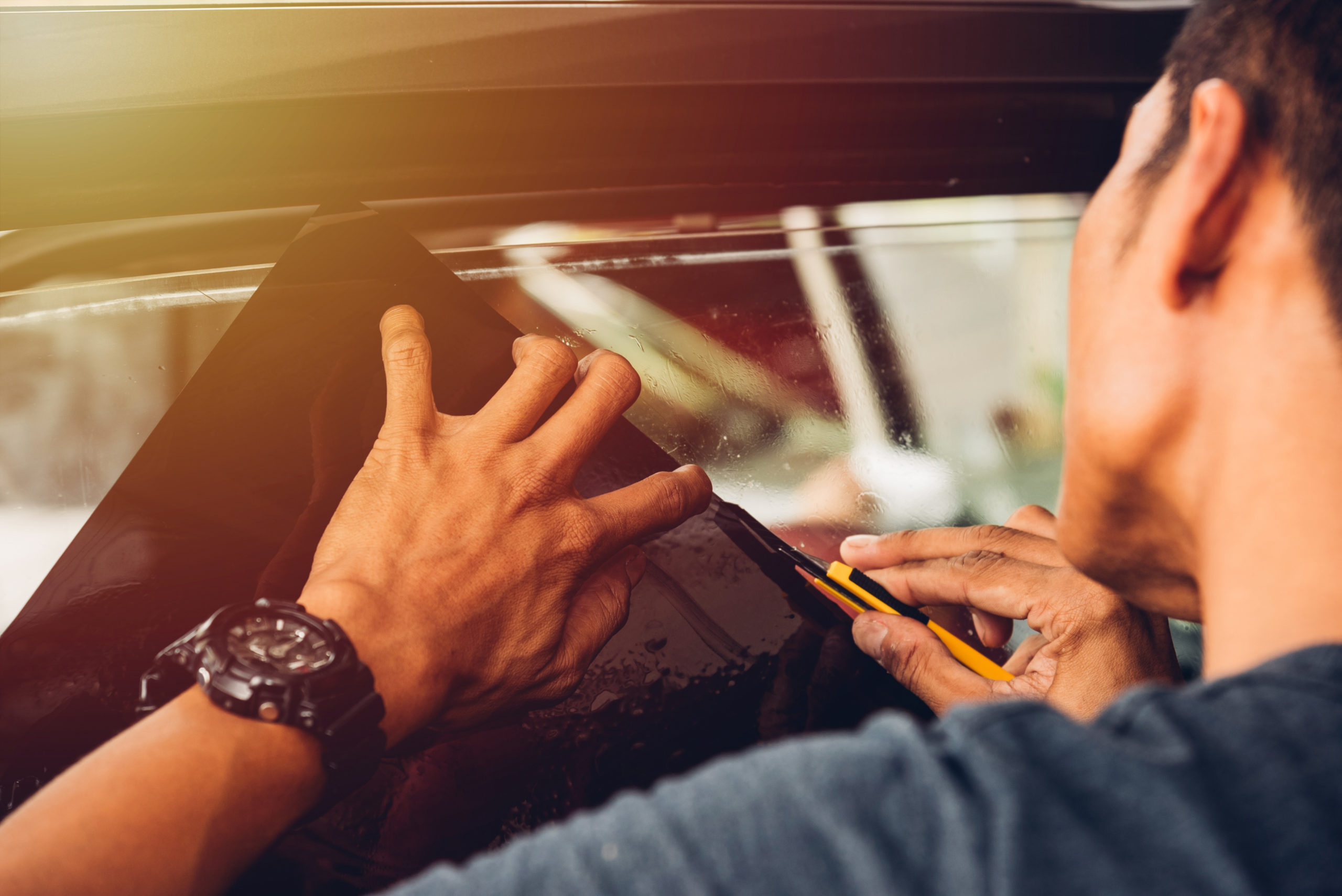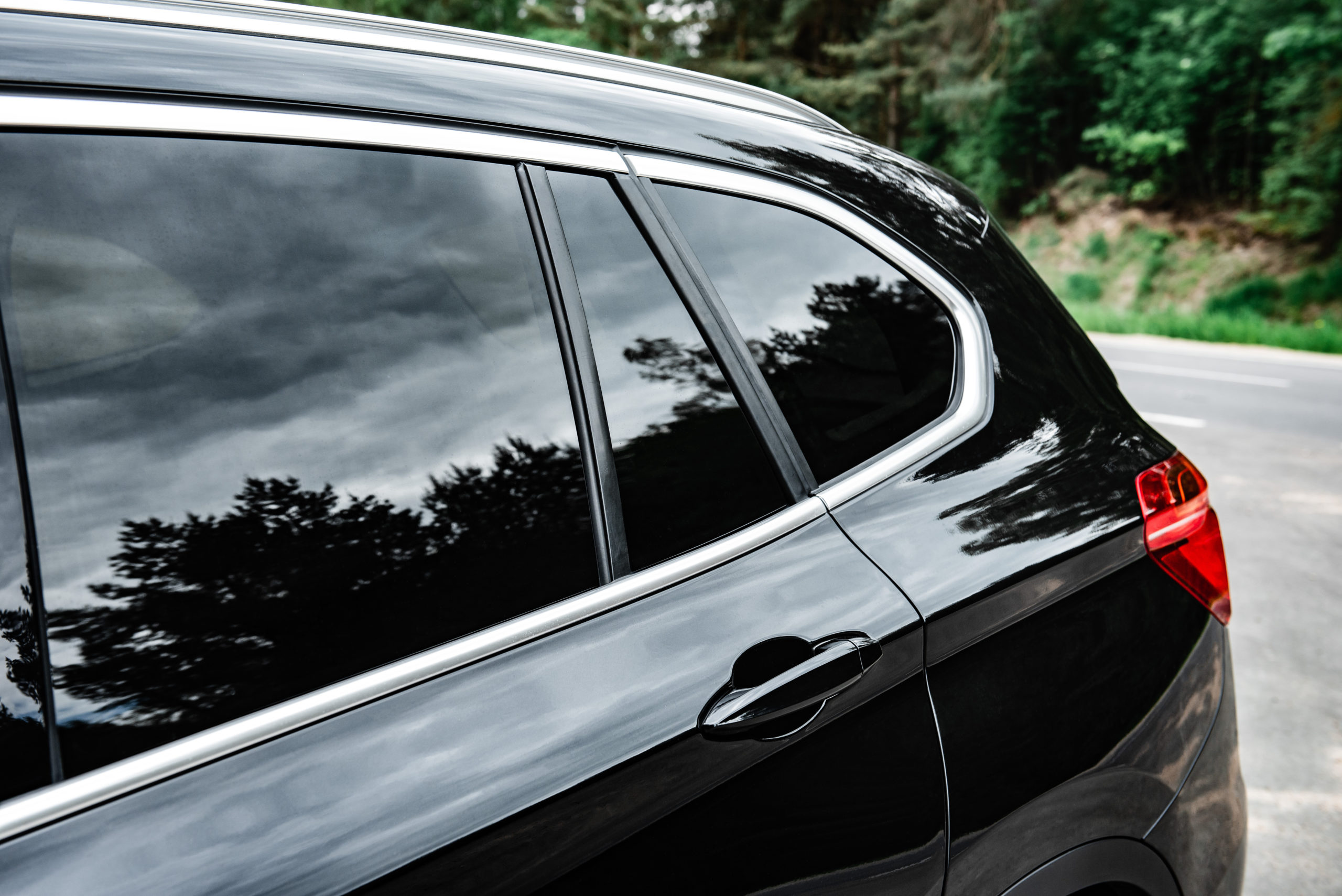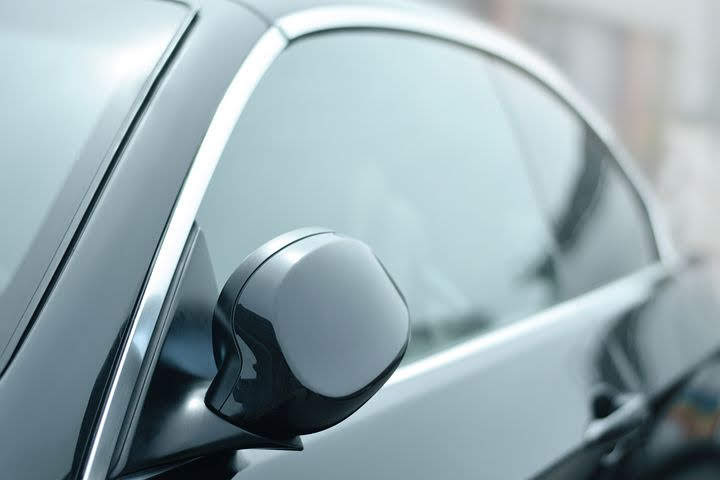When it comes to window tinting, car owners like Dave and Pam face a common decision: go the DIY route to save some upfront costs or opt for professional installation for guaranteed quality and durability. In this blog, we’ll explore why choosing professional installation is the smart choice, comparing Dave’s attempt to save money through DIY methods and Pam’s decision to invest in professional services.
DIY Cost-Saving vs. Professional Quality
DIY Dave
Dave begins his day motivated by the idea of saving money. Influenced by a few online videos and forum posts, he decides on a DIY window tinting approach, thinking it’s just a matter of buying the film and sticking it on.
The potential cost savings loom large in his mind, overshadowing the potential technical challenges he could encounter.
Pro Pam
Pam, on the other hand, is already thinking steps ahead. She opts to choose a local shop for her window tinting needs. Pam understands that while the cost is higher upfront when hiring professionals, the investment is justified by the benefits.
She knows this choice guarantees a high-quality job that will not only look better, but will also last longer and perform better. Overall, Pam values the peace of mind that comes from knowing her car is in the hands of seasoned professionals.
Reason #1. Professional Installations Are Warranty-Backed
When you opt for professional window tinting from a trusted provider, you’re not just getting expert installation—you’re also securing robust warranty protections that DIY methods cannot match. At G-Force, we use XPEL PRIME Automotive Window Film, a leading product in the industry, backed by a comprehensive manufacturer’s warranty. This means if any issues arise in the future, such as discoloration, fading, bubbling, peeling, cracking, or delamination, you’re covered.
DIY Research and Professional Consultation
DIY Dave
Eager to get started, Dave heads online and grabs the first window tint film he finds. He makes his selection based solely on price, overlooking the specific requirements such as the size and shape of his car’s windows, and the film’s suitability for his car’s needs and local climate.
Pro Pam
Pam visits the shop, where she is consulted by the team who take the time to understand her needs and the specificities of her vehicle.
The experts consider factors such as her car’s model, the regional climate, and local legal requirements for tint levels. They guide her in choosing the best type for her!
Reason #2. Professional Installers Are Experts
At professional shops, including G-Force Films, experts don’t just apply tint; they conduct a thorough assessment of each customer’s needs. This includes considering the make and model of your vehicle, the typical Savannah weather conditions (if you’re a local), and how you use your car—whether it’s for short city trips or longer commutes. This personalized approach allows us to recommend the best type of tint film that meets your specific requirements for UV protection, heat reduction, and privacy.
On the other hand, DIY tinting often relies on a one-size-fits-all approach, where the information available online may not consider unique aspects of your car or your needs. This can lead to a less effective tint, potential legal issues, and ultimately, wasted effort and resources.
DIY Challenge vs. Expert Precision
DIY Dave
Dave sets up in his garage, ready to apply the tint himself. Without the proper tools or environment, he struggles from the start.
The film sticks unevenly, and air bubbles appear as he attempts to smooth it out. Dave finds it challenging to align the edges correctly, resulting in a tint that is visibly flawed and likely to peel or fade prematurely.
His initial excitement turns to frustration as he realizes that the application is far more complicated than he anticipated.
Pro Pam
At the facility, Pam is confident as she leaves her car in the hands of certified professionals. She trusts the uncompromising quality and expert installation they offer.
With her car in reliable hands, Pam decides to use her time efficiently and goes shopping, enjoying her afternoon without worry.
Reason #3. Professional Installation Saves You Time
Choosing professional window tinting with a professional means significant time savings compared to DIY efforts. A DIY window tinting project typically involves a steep learning curve that can significantly prolong the task. Many first-timers struggle with cleaning the windows, precisely cutting the film, and applying it without bubbles or wrinkles, often taking an entire day or more, particularly if any corrections are needed. For example, our skilled technicians are trained to handle every aspect of window tinting with precision, from preparing the windows to applying the film flawlessly—getting you back on the road in just hours.
DIY Pitfalls vs. Professional Perfection
DIY Dave
Dave steps back to assess his work and the flaws are immediately evident. The tint is uneven, with air bubbles and wrinkles that no amount of smoothing can fix. The edges aren’t properly sealed, suggesting that peeling is inevitable.
Disappointed and frustrated, he realizes that not only does the tint look amateurish, but it might also not even fulfill its functional purpose of UV and glare reduction.
He starts contemplating the daunting task of removal and whether he’ll need to seek professional help to redo the job.
Pro Pam
After returning from her afternoon out, Pam is greeted with her car looking transformed. The tint is applied perfectly with no visible defects. The edges are smooth, and the coverage is consistent, enhancing her vehicle’s aesthetics significantly.
More importantly, she knows that the high-quality film used by the professionals will ensure optimal functionality, effectively blocking harmful UV rays and reducing solar heat.
Satisfied, Pam knows that her investment was worthwhile.
Reason #4. Professional Installation Outperforms DIY
The combination of high-quality films and professional-grade tools ensures that the tint application is not only beautiful, but also highly effective in performance. At G-Force Films, our technicians are XPEL-certified, meaning they have undergone rigorous training and met stringent standards in window tinting techniques and technology. While other shops may not have this distinction, trained technicians still have the skills to easily avoid common window tint issues, delivering quality that is simply unachievable with typical DIY kits.
The Real Costs of DIY vs. Professional Tinting
DIY Dave
After a long and frustrating day, Dave sits back and reflects on his attempt to tint his own car windows. The realization of time wasted, coupled with the subpar results, weighs heavily on him.
The cost of the materials, now seemingly a waste, and the prospect of having to pay not only for new tint, but also potentially for professional removal of his failed attempt, loomed over his evening.
Dave starts to recognize the false savings of his initial choice to DIY and considers turning to professionals to fix his mistakes.
Pro Pam
Pam enjoys her drive home as the sun sets, appreciating the comfort and functionality of her professionally tinted windows. She reflects on her decision to invest in professional services and is pleased with the outcome.
The seamless look of her tint, combined with the knowledge that it is applied correctly and is protected in case of potential defects, brings her immense satisfaction.
Pam feels reassured by the professionalism and the quality of her choice, knowing her investment has not only enhanced her car’s aesthetics, but also its long-term value.
Reason #5. Professional Installation is More Cost-Effective
It’s a common misconception among DIY enthusiasts that handling window tinting themselves will always save money. However, the reality often proves otherwise, as the potential for mistakes, absence of warranties, and legal non-compliance can lead to unforeseen expenses, outweighing the initial cost savings.
On the other hand, professional installation by services like G-Force Films not only ensures a flawless application with industry name materials, but also comes with warranties and compliance guarantees, providing results that last in the long run.
Don’t Settle for Less, Choose G-Force Films
While DIY window tinting might seem tempting as a way to save money, the risks of DIY tinting are numerous and can end up costing more in the long run. Don’t be like Dave—make the smart choice by opting for professional window tinting with G-Force Films.
Don’t compromise on the quality and durability of your window tinting; contact G-Force Films today and ensure your car receives the professional touch it deserves.

